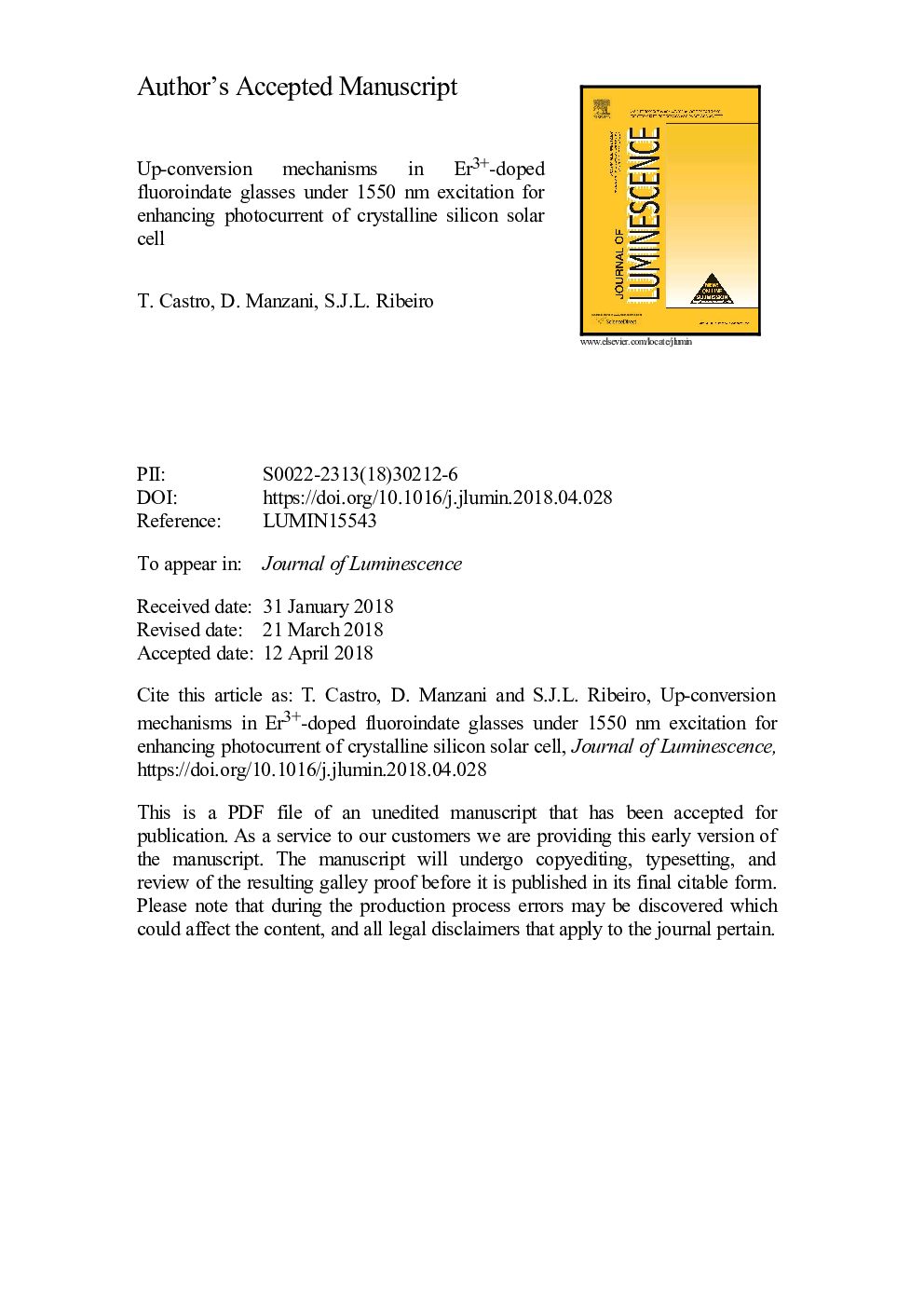| Article ID | Journal | Published Year | Pages | File Type |
|---|---|---|---|---|
| 7840024 | Journal of Luminescence | 2018 | 19 Pages |
Abstract
In this work, Er3+-containing fluoroindate glasses were synthesized by the conventional melt-quenching method varying Er3+ content from 0.1 to 7â¯mol%. The series of fluoroindate glass were investigated according to their luminescent properties. Upon excitation at 1550â¯nm, all glass samples showed green, red and near-infrared emissions centered at 550, 667 and 978â¯nm. Energy transfer upconversion (ETU) is the main mechanism responsible for the upconverted emissions and involves neighbour erbium ions. The highest near-infrared emission intensity at 1000â¯nm is observed for the glass sample containing 7â¯mol% of Er3+, which was used to evaluate the photovoltaic response of monocrystalline and monofacial silicon solar cell. This approach represents a beneficial strategy to stud spectral modification in upconverter materials.
Related Topics
Physical Sciences and Engineering
Chemistry
Physical and Theoretical Chemistry
Authors
T. Castro, D. Manzani, S.J.L. Ribeiro,
